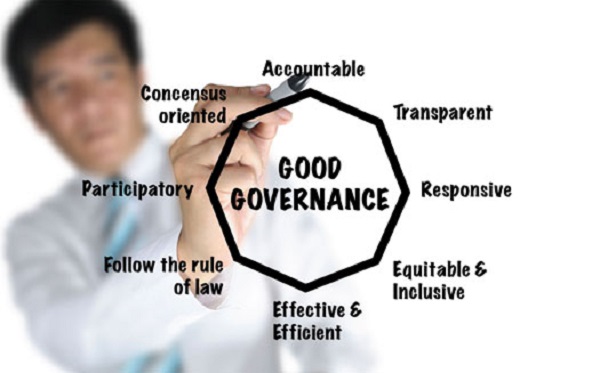
Are we sliding down good governance stakes?
On the UN International Day of Democracy commemorated on September 15, I found myself wondering whether goings-on in the country signalled our downhill slide in the good governance stakes and if we should be worried.
Yes, we should be worried because an increasing number of policy economists now consider good governance to be crucial for long-term economic growth, with many pointing to bad governance as the main factor impeding economic development in many African countries.
Indeed, a 1998 World Bank study suggests that with good governance, an additional one per cent of GDP in aid could result in, at least, one per cent decline in poverty and infant mortality, because of lower corruption and the efficient use of the aid.
Consequently, good governance has become the main conditionality for aid from Western donors/financial institutions.
Good governance
At its simplest, governance describes the process and the authority by which a country is governed: that is the political, economic and administrative powers of a government for managing a country's affairs and resources.
It also determines how a government is accountable to citizens and the civic responsibilities of citizens. It is, however, difficult to provide a simple definition for a multi-dimensional concept such as good governance.
Nonetheless, the UN considers eight characteristics to be critical for good governance. These require that a government must be accountable, transparent, responsive, equitable and inclusive, effective and efficient, participatory, consensus-oriented and follow the rule of law.
A government must reflect all these characteristics and not just some to claim full good-governance credentials.
These characteristics are self-explanatory and require only brief explanation. To be accountable, a government and its institutions must be answerable to the public.
Civil society organisations must also be answerable to their stakeholders and people affected by their decisions.
Transparency condition requires that a government’s decision-making process is open, and information about decisions is readily available and accessible to the public.
Free and independent media is essential.
A responsive government consults citizens in major policy decisions, with public institutions readily serving all citizens.
Equity and inclusiveness condition requires all sections of society to be treated in such a way that they all feel they have a stake in the country.
Furthermore, all citizens, particularly the marginalised, must have opportunities to improve their well-being.
Effectiveness and efficiency conditions require a government and its institutions not to be wasteful in the use of the country’s resources.
The rule of law condition demands the existence of an independent judiciary, an effective and fair law enforcement, and the protection of human rights.
In participatory government, all citizens must have an opportunity to participate in decision making either directly or indirectly through their representatives, elected in free and fair elections.
Finally, a government which is consensus-oriented must mediate the diverse sectional interests in society and make decisions that are in the national interest, and not only in the interest of the majority, thereby preventing the excesses of majoritarian tyranny.
Good governance, economy
The above characteristics result in stable and safe society with adequate provision of infrastructure, little or no corruption, and efficient civil service, among other things.
These in turn result in an enabling environment, a catch-all phrase for the ideal situation in which starting new businesses is relatively easy, providing incentives for both domestic and foreign direct investors.
Theoretically, the resulting higher investment is likely to lead to higher employment creation and eventually to reduction in poverty and improvement in social welfare.
This abbreviated discussion shows that based on the UN conditions, good governance requires a lot more than just having free and fair elections every four years. It requires building and strengthening institutions and much more.
With good governance, the senseless waste of national resources resulting from the cavalier manner in which incoming governments abandon projects started by their predecessors; the daily reports of Power Distribution System-type malversations, of sky-high corruption, of widespread lawlessness and impunity, of incompetent ministers and public officials, of stacking public institutions with unqualified governing party members and loyalists, and of reserving jobs for governing party loyalists will be history.
Should we continue congratulating ourselves for good governance in Ghana or should we strive to do better?
The writer is an academician in Policy Economics
Writer’s E-mail: haborbi@yahoo.com
